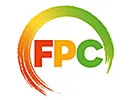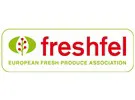On 31 December last year, the UK left the EU’s Single Market and Customs Union. This was the biggest change in the UK’s trading relationships for decades. The Government has always been clear that this meant change for business and for citizens, including new processes and requirements.
The first phase of such changes came in on 1 January. The Government has put in place the staffing, infrastructure, and IT to deal with the situation. Thanks to the hard work of traders and hauliers, we have not seen anything like the generalised disruption at our ports which many predicted, and supply chains have shown themselves to be robust.
However, the Government recognises the scale and significance of the challenges businesses have been facing in adjusting to the new requirements, at the same time as dealing with the impacts of COVID.
Last June, we announced a timetable for the phased introduction of controls on imports from the EU into Great Britain, to ensure businesses could prepare in a phased way. This timetable was based on the impacts of the first wave of COVID. We know now that the disruption caused by COVID has lasted longer and has been deeper than we anticipated. Accordingly, the Government has reviewed these timeframes.
Although we recognise that many in the border industry and many businesses have been investing time and energy to be ready on time, and indeed we in Government were confident of being ready on time, we have listened to businesses who have made a strong case that they need more time to prepare. In reviewing the timeframes, we have given strong weight to the disruption which has been caused, and is still being caused, by COVID, and the need to ensure that the economy can recover fully.
We are therefore announcing today a clear revised timetable for the introduction of controls, as follows:
- Pre-notification requirements for Products of Animal Origin (POAO), certain animal by-products (ABP), and High Risk Food Not Of Animal Origin (HRFNAO) will not be required until 1 October 2021. Export Health Certificate requirements for POAO and certain ABP will come into force on the same date.
- Customs import declarations will still be required, but the option to use the deferred declaration scheme, including submitting supplementary declarations up to six months after the goods have been imported, has been extended to 1 January 2022.
Safety and Security Declarations for imports will not be required until 1 January 2022. - Physical SPS checks for POAO, certain ABP, and HRFNAO will not be required until 1 January 2022. At that point they will take place at Border Control Posts.
- Physical SPS checks on high risk plants will take place at Border Control Posts, rather than at the place of destination as now, from 1 January 2022.
- Pre-notification requirements and documentary checks, including phytosanitary certificates will be required for low risk plants and plant products, and will be introduced from 1 January 2022.
- From March 2022, checks at Border Control Posts will take place on live animals and low risk plants and plant products.
Traders moving controlled goods into Great Britain will continue to be ineligible for the deferred customs declaration approach. They will therefore be required to complete a full customs declaration when the goods enter Great Britain.
Controls and checks on Sanitary and Phytosanitary goods are of course a devolved matter and we continue to work closely with the Devolved Administrations on their implementation, in particular with the Welsh Government on their timetable for completing supporting Border Control Post infrastructure in Wales.
We will continue to engage extensively with businesses to support them to adjust to the new requirements already in place and to prepare for the new requirements set out above so that they can continue to trade successfully under the new arrangements.
The following is a statement by Nigel Jenny, CEO of Fresh Produce Consortium.
 "The Fresh Produce Consortium welcomes the UK Government’s decision to revise the timetable for import controls and not to introduce the requirement for phytosanitary certificates for EU imports of fresh fruit and vegetables produce on 1 April. The UK Government has recognised the enormity of the challenges facing the UK fresh produce industry and its European partners, as well as its own plant health inspection service. It realises that it must get its act together before imposing on the UK fresh produce industry the next stage of significant change.
"The Fresh Produce Consortium welcomes the UK Government’s decision to revise the timetable for import controls and not to introduce the requirement for phytosanitary certificates for EU imports of fresh fruit and vegetables produce on 1 April. The UK Government has recognised the enormity of the challenges facing the UK fresh produce industry and its European partners, as well as its own plant health inspection service. It realises that it must get its act together before imposing on the UK fresh produce industry the next stage of significant change.
This decision would not have happened without extensive lobbying by the Fresh Produce Consortium. Whilst we have secured this temporary reprieve we hope that it will enable the UK plant health authorities to put in place the much need electronic certification system which is essential to alleviate several issues we have identified before pre-notification is introduced.
APHA must improve its current inspection service now. UK importers are experiencing significant problems with high risk plant products due to poor availability of plant health inspectors, delays in inspections and clearance of consignments. This has resulted in highly perishable products having to be thrown away and potential loss of contracts with customers.
Much of the friction our industry is facing is due to decisions made by our own government in implementing necessary changes, the systems it has chosen to adopt, and their lack of coordination with industry and its highly efficient supply chains."
Freshfel Europe also made a statement regarding the Government's decision:
 "Over the past months Freshfel Europe has been advocating in cooperation with its members for more flexibility from the UK when it comes to the obligation for EU fresh produce exports to the UK to carry phytosanitary certificates from 1 April. Today’s announcement by the UK government about the adjustment of the timelines in the introduction of controls for EU imports, made in a written statement by RT Hon Michael Gove, Chancellor of the Duchy of Lancaster and Minister for the Cabinet Office, is therefore warmly welcomed by Freshfel Europe and the fruit and vegetables sector as a crucial relief to enable the sector to smoothly adapt to Brexit in the ever-challenging context of the ongoing COVID-19 pandemic.
"Over the past months Freshfel Europe has been advocating in cooperation with its members for more flexibility from the UK when it comes to the obligation for EU fresh produce exports to the UK to carry phytosanitary certificates from 1 April. Today’s announcement by the UK government about the adjustment of the timelines in the introduction of controls for EU imports, made in a written statement by RT Hon Michael Gove, Chancellor of the Duchy of Lancaster and Minister for the Cabinet Office, is therefore warmly welcomed by Freshfel Europe and the fruit and vegetables sector as a crucial relief to enable the sector to smoothly adapt to Brexit in the ever-challenging context of the ongoing COVID-19 pandemic.
In the announcement, the UK agrees to postpone the introduction of phytosanitary certification obligations for most fresh produce, considered low risk plant products, until January 2022, when documentary checks will start to apply. Physical checks at Border Control Posts on fresh produce will only be applied from March 2022. Freshfel Europe General Delegate Philippe Binard emphasized that, “Freshfel Europe has been voicing strong concerns over the last months and we consider that this postponement is essential to ensure the supply of the UK market and the continuation of trade flows through the Channel, across which the EU27 exports over 3 million tonnes of fresh fruit and vegetables a year”. Currently EU supply represents 40% of the UK’s internal demand for fresh produce.
Following this welcome news, the sector further calls EU and UK authorities to make the most of this extended 9- month transition to speed-up preparations to ensure the smooth running of operations in 2022. The challenge remains enormous – over 750,000 phytosanitary certificates will be required on an annual basis to sustain EU-UK trade in fresh produce, a substantial economic and administrative burden, and a threat to the capacity of the industry to continue ‘just in time’ operations if administrative procedures are not sped-up.
Freshfel Europe Director for Trade and Market Access Natalia Santos-Garcia Bernabe, highlighted that, “In Freshfel Europe and FPC’s letter to the RT Hon Michael Gove, the sector reiterated the need for electronic certification transmission between the EU and the UK to be up and running before the end of the year through the e-Phyto hub”. The postponement will give more time on both side of the Channel to work on digitalization and the successful introduction of electronic certification in 2022."
For more information:
Fresh Produce Consortium
www.fpcfreshtalkdaily.co.uk
Freshfel
www.freshfel.org
